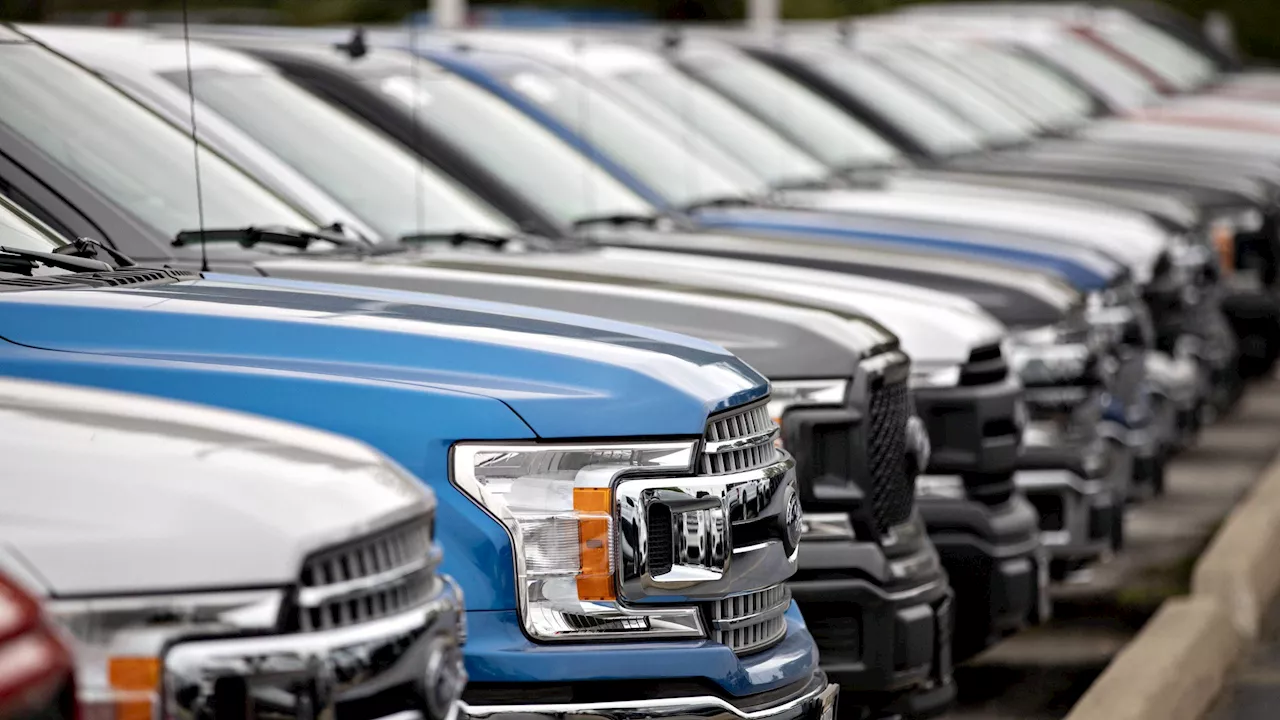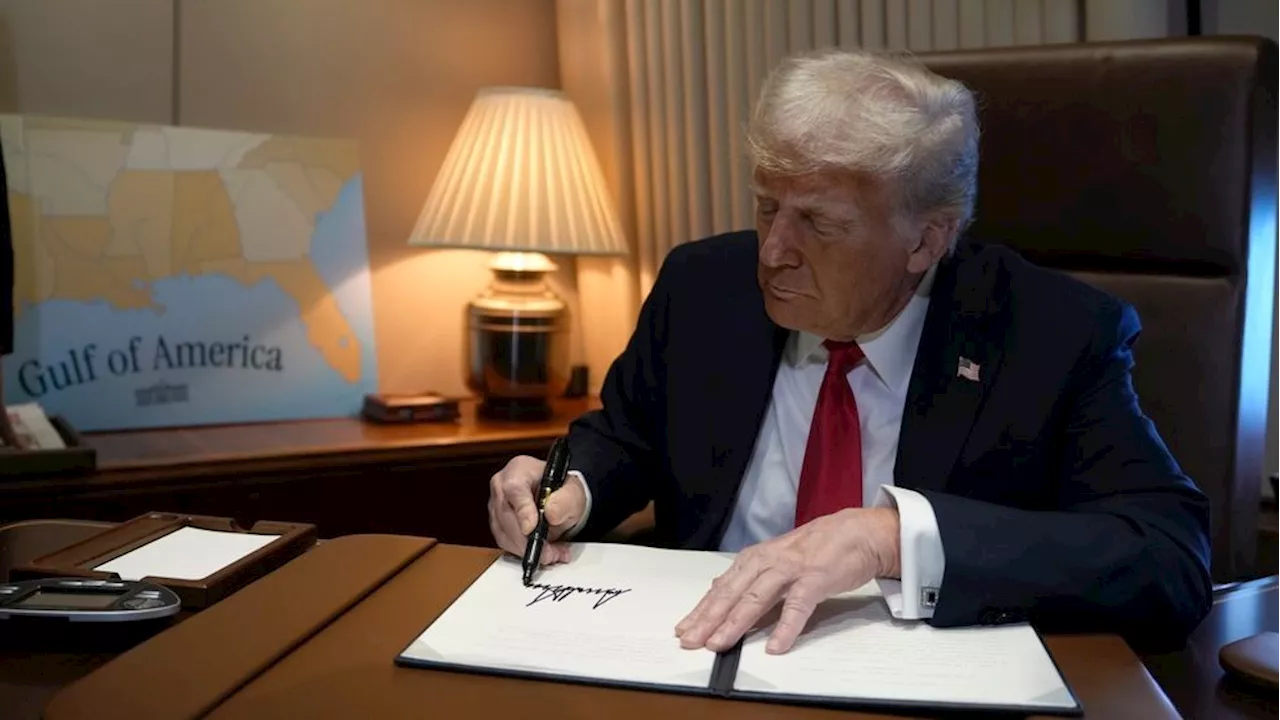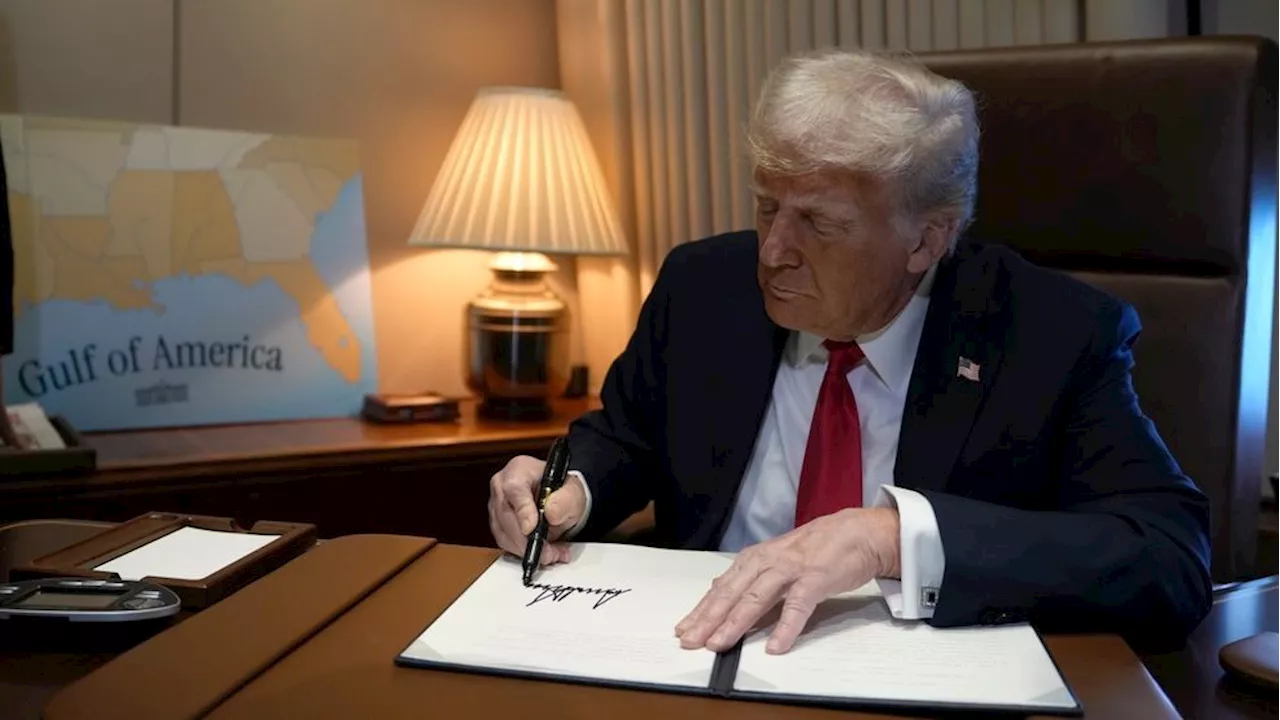Ford CEO Jim Farley warns that proposed tariffs on Mexico and Canada would be disastrous for the U.S. auto industry, highlighting the unpredictability and disruption caused by Trump's trade policies.
The auto industry is sounding the alarm about proposed tariffs on Mexico and Canada . Ford CEO Jim Farley is pretty clear that he's unhappy with what he's seen from the Trump administration. 'So far what we’re seeing is a lot of cost and a lot of chaos,' he said at a conference. Donald Trump wants to be a business-friendly president. The main problem so far, however, is that his policies don't match that pitch.
He sent the stock market into a tail-slide when he announced 25% tariffs on Canada and Mexico, only to delay them right before they took effect. Ford CEO Jim Farley didn't mince words about the problems this is creating for the company, as a new report from Automotive News details. “President Trump has talked a lot about making our U.S. auto industry stronger, bringing more production here, more innovation to the U.S., and if this administration can achieve that it would be, I think, one of the most signature accomplishments,” Farley said, per Automotive News. “So far what we’re seeing is a lot of cost and a lot of chaos.” He said this during the Wolfe Research Auto, Auto Tech and Semiconductor Conference, during which Trump has been a key topic. During the President's previous term, he renegotiated the trade agreement governing commerce between the U.S., Mexico and Canada. His U.S.-Mexico-Canada Agreement (USMCA) succeeded the North American Free Trade Agreement (NAFTA), with both allowing broadly duty-free trade between the major partners. But Trump no longer seems to back his own agreement, arguing that Mexico and Canada are depriving the U.S. of jobs. This is a headache for companies like Ford and General Motors, which have invested billions in Mexico and Canada, relying on free-trade agreements to export Mexican- or Canadian-built cars into the U.S. Farley says Ford has worked hard to become USMCA compliant, with most of its content coming from one of the three nations. But now the new tariffs threaten to blow up that work. The Chevy Blazer EV and Equinox EV are both built in Mexico. That could be a problem for GM's EV ambitions. Ford has a plan for how to address this issue, and I highly recommend you read the Automotive News story for the full breakdown. But Farley is saying out loud here what many companies are saying behind the scenes: Automotive supply chains take years to set up, and they can't be relocated on a whim. Especially given that Trump's orders so far have seen delays, court-ordered pauses and constant whipsaws. Businesses depend on regulatory stability and certainty that Trump isn't providing. Of course, the effort to build more products domestically is not without merits. Trump's push to bring jobs back was a good campaign promise for a reason: Americans miss the days when a robust manufacturing economy provided upward mobility and stable middle-class paychecks to broad swaths of the public. Yet it's a strange time for such a push. While all politicians want to increase the number of available jobs, the U.S. economy has arguably the opposite core issue right now. We are near full employment, and worries over consumer prices seem to be the thing weighing down most pocketbooks. Tariffs almost always result in higher prices for consumers, and even if they result in more domestic jobs, there are plenty of signs that the U.S. can't absorb even more demand for workers without it increasing inflation. I won't claim to know the answer. There's no absolute truth in free trade or protectionism, no perfect way to balance our desire for high-paying manufacturing jobs with our desire to have everything we could possibly want, at the lowest possible price. But one thing is clear for business: If American companies are going to succeed, to lead the world, they need to know the rules of the game they're playing. Immediately tearing up all their existing assets and plans is not a viable commercial strategy. And if the U.S. has a messy divorce from its closest trading partners, you, the auto industry and everyone else is going to feel that pain. “Let’s be real honest: Long-term, 25% tariffs across the Mexican and Canadian border would blow a hole in the U.S. industry that we have never seen,” Farley said. Let's hope it doesn't come to that
Tariffs Mexico Canada Auto Industry Ford Donald Trump Trade War USMCA
United States Latest News, United States Headlines
Similar News:You can also read news stories similar to this one that we have collected from other news sources.
 Auto Industry Holds Breath as Trump Threatens Tariffs on Canada, MexicoThe global automotive industry is anxiously awaiting President Donald Trump's decision on whether to impose 25% tariffs on Canadian and Mexican imports. Major automakers, including General Motors, Volkswagen, Nissan, and Stellantis, are seeking clarity to plan accordingly. Tariffs could significantly impact vehicle production, costs, and consumer demand.
Auto Industry Holds Breath as Trump Threatens Tariffs on Canada, MexicoThe global automotive industry is anxiously awaiting President Donald Trump's decision on whether to impose 25% tariffs on Canadian and Mexican imports. Major automakers, including General Motors, Volkswagen, Nissan, and Stellantis, are seeking clarity to plan accordingly. Tariffs could significantly impact vehicle production, costs, and consumer demand.
Read more »
 Trump's Tariffs on Imports from Canada, Mexico, and China Spark Concerns in the Auto IndustryPresident Trump's plan to impose tariffs on imports from Canada, Mexico, and China has raised alarm bells in the automotive industry. While tariffs on Mexico have been temporarily paused, the potential impact on American automakers and consumers remains a significant concern.
Trump's Tariffs on Imports from Canada, Mexico, and China Spark Concerns in the Auto IndustryPresident Trump's plan to impose tariffs on imports from Canada, Mexico, and China has raised alarm bells in the automotive industry. While tariffs on Mexico have been temporarily paused, the potential impact on American automakers and consumers remains a significant concern.
Read more »
 Trump Doubles Down on Canada Annexation, Threatens Tariffs on Mexico and CanadaPresident Donald Trump reiterated his desire to annex Canada as the 51st state during a Super Bowl Sunday interview, sparking controversy and tension. He also expressed dissatisfaction with Mexico and Canada's efforts to avert tariffs and indicated plans to impose them on steel and aluminum imports from both nations.
Trump Doubles Down on Canada Annexation, Threatens Tariffs on Mexico and CanadaPresident Donald Trump reiterated his desire to annex Canada as the 51st state during a Super Bowl Sunday interview, sparking controversy and tension. He also expressed dissatisfaction with Mexico and Canada's efforts to avert tariffs and indicated plans to impose them on steel and aluminum imports from both nations.
Read more »
 Trump Says Canada Should Be 51st State, Targets Mexico and Canada with TariffsPresident Trump reiterates his desire for Canada to join the US as the 51st state, citing a $200 billion trade deficit. He also announces plans to impose 25% tariffs on steel and aluminum imports from Canada and Mexico.
Trump Says Canada Should Be 51st State, Targets Mexico and Canada with TariffsPresident Trump reiterates his desire for Canada to join the US as the 51st state, citing a $200 billion trade deficit. He also announces plans to impose 25% tariffs on steel and aluminum imports from Canada and Mexico.
Read more »
 Trump States Desire to Annex Canada, Calls for Tariffs on Mexico and CanadaPresident Donald Trump declared his intention to annex Canada during a Super Bowl interview, citing a perceived $200 billion annual loss to the US due to the current trade relationship. He also expressed dissatisfaction with Canada and Mexico's efforts to address border security concerns, stating that he will announce 25% tariffs on steel and aluminum imports from both countries.
Trump States Desire to Annex Canada, Calls for Tariffs on Mexico and CanadaPresident Donald Trump declared his intention to annex Canada during a Super Bowl interview, citing a perceived $200 billion annual loss to the US due to the current trade relationship. He also expressed dissatisfaction with Canada and Mexico's efforts to address border security concerns, stating that he will announce 25% tariffs on steel and aluminum imports from both countries.
Read more »
 Trump Warns 25% Tariffs on Canada and Mexico Could Begin on February 1Source of breaking news and analysis, insightful commentary and original reporting, curated and written specifically for the new generation of independent and conservative thinkers.
Trump Warns 25% Tariffs on Canada and Mexico Could Begin on February 1Source of breaking news and analysis, insightful commentary and original reporting, curated and written specifically for the new generation of independent and conservative thinkers.
Read more »
